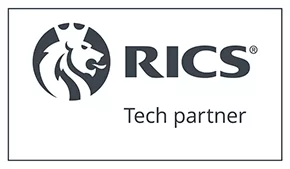Cost overrun occurs when the actual cost of a construction project exceeds the initial budgeted amount. It’s a common issue in the construction industry, often resulting from unforeseen circumstances, changes in project scope, or inaccurate cost estimation. Cost overruns can impact the financial stability of a project, leading to potential disputes and the need for additional funding to complete the project as planned.
Key Causes:
- Unforeseen Circumstances: Unexpected events such as adverse weather conditions, site issues, or supply chain disruptions.
- Scope Changes: Alterations to the project scope after the initial budget has been set, including design changes and additional requirements.
- Inaccurate Estimation: Errors or omissions in the initial cost estimation process, leading to under-budgeting.
- Price Fluctuations: Increases in the cost of materials, labor, or equipment due to market conditions.
- Delays: Project delays that result in extended timelines and increased costs for labor and equipment.
Impacts:
- Financial Strain: Strains the financial resources of the project, potentially requiring additional funding.
- Stakeholder Disputes: Can lead to disputes between stakeholders, including clients, contractors, and subcontractors.
- Project Delays: May cause delays in project completion as additional time is needed to secure extra funds and manage increased costs.
- Reduced Profit Margins: Erodes profit margins for contractors and can affect the overall financial health of the construction firm.
Prevention and Management:
- Accurate Estimation: Use detailed and accurate cost estimation techniques, incorporating historical data and expert judgment.
- Contingency Planning: Include a contingency allowance in the budget to cover unexpected costs and risks.
- Change Management: Implement a robust change management process to handle scope changes and their financial implications.
- Regular Monitoring: Continuously monitor project costs and progress to identify potential overruns early.
- Effective Communication: Maintain open communication with all stakeholders to manage expectations and address issues promptly.
- Risk Management: Identify potential risks early and develop mitigation strategies to minimize their impact on the budget.
Process:
- Initial Budgeting: Develop a comprehensive initial budget based on detailed project plans and estimates.
- Cost Tracking: Implement a cost tracking system to monitor actual expenses against the budget in real-time.
- Variance Analysis: Conduct regular variance analysis to identify discrepancies between planned and actual costs.
- Issue Resolution: Address cost overruns promptly by investigating the causes and implementing corrective actions.
- Reporting: Provide regular financial reports to stakeholders, highlighting any cost overruns and their impact on the project.
Applications in Construction:
- Project Planning: Essential for accurate project planning and budgeting to avoid financial shortfalls.
- Risk Management: Integral to risk management strategies, helping to anticipate and mitigate potential overruns.
- Stakeholder Management: Critical for maintaining stakeholder confidence and managing contractual relationships.




